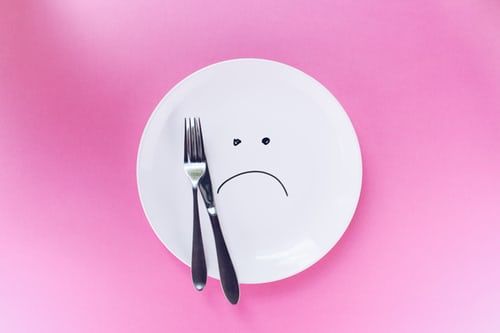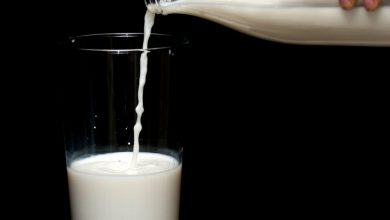
How to Get Past a Weight Loss Plateau
It is really not easy to achieve your weight loss goal. Initially, the weight seems to come off quite rapidly, but it is also likely that your weight will not budge. This hurdle in your weight loss goal is known as a weight loss plateau, and it can be annoying and irritating. But there are several strategies that can help you start losing weight again.
Cutting Carbs
According to research, low-carb diets have been proved really helpful to lose weight.
Cutting down on carbs can be helpful to control your weight when you feel stalled. A wide-scale review included 13 studies with over a year of follow-up. It was found that people who ate less than 50g of carbs per day were more successful in losing weight than people who were going through traditional weight-loss diets. The statement that carbs can take you to the metabolic edge, which makes your body burn more calories, is a matter of debate. According to some controlled studies, low carb diets can promote fat burning and other changes in metabolism which promote weight loss.
However, diets that contain very low carbs have been proven to promote the feeling of fullness and reduce hunger more than other diets. Along with it, low carb diets trigger your body to generate ketones that reduce hunger. This way, you automatically eat less, and it can be easier for you to start losing weight without pain or hunger.
Increase Intensity and Frequency of Exercise
When you rev up your exercise routine, you can easily reverse the plateau. However, it also slows down your metabolic rate. A study was conducted on over 2900 people. For every 0.45 kg (1 pound) of weight loss, around 6.8 fewer calories were burned. This reduction in metabolism can further make it troublesome to lose weight.
The best thing is that exercise can help counteract this outcome. Resistance training is another helpful way of retaining muscle density. It is another factor that affects the number of calories you burn while resting and during physical activity. Resistance training has been helpful for weight loss.
In a study conducted for 12 weeks, obese, young women who have done weight lifting for 20 minutes and stuck to low-calorie diets experienced the loss of 2 inches of waistlines and 13 pounds of weight. Highly intense interval training and aerobic workouts are other exercises that can prevent metabolic slowdown. You can work out for an additional one to two days per week or improve the intensity of workouts to increase your metabolic rate.

Watch What You Eat
It may seem like you are not consuming much, but you are still having trouble losing weight. Researchers have found that people tend to overlook the amount of food they consume. According to a report, obese people ate around 1200 calories per day. In a period of 14 days, an in-depth analysis reported that they were taking almost double that amount.
Tracking your fat, protein, carbs, and other macronutrients and calories can provide solid details on how much you consume. This way you can modify your diet. According to this research, keeping track of your food may also improve your efforts on weight loss.
Control Stress
Stress can also keep you from losing weight. Along with improving comfort in dealing with appetite and eating, it also promotes the production of cortisol in your body. Cortisol is a stress hormone that helps our body to trigger back to stress, but it also increases the storage of belly fat. In addition, it is known to have a stronger effect on women. But too much production of cortisol can make it very difficult to lose weight.
You may have a bit of control on your stress, but you need to learn how to manage stress to improve weight loss results. In a study conducted on 34 obese and overweight women for 8 weeks, a stress management program led to the weight loss of over 4.4 kg, which included deep breathing and muscle relaxation.
Don’t Control Your Protein Intake
If you have started your weight loss journey, it would be better to improve your protein intake. First of all, protein improves metabolic rate more than carbs or fat. It is because of the thermic effect of food or hike in metabolic rate due to the digestion of food. Our body burns up to 30% more calories to digest protein.
In a study, young and healthy women followed diets that provided 15% or 30% calories from protein. They have seen the two-fold rise in metabolic rate after consuming higher protein meals.
In addition, protein also promotes the production of PYY hormones which can make you feel satisfied, and full, and it can help cut down on appetite. In addition, maintaining a high amount of protein consumption can help prevent muscle loss and lower your metabolic rate, which usually takes place in weight loss.
Don’t Drink Alcohol
Alcohol may help sabotage your efforts in weight loss. Even though one drink has just 100 calories, it doesn’t add any nutritional value. Another issue is that alcohol controls inhibitions, and it can also cause overeating. It can cause even more problems for the people who want to deal with impulsive behaviors on food.
Intermittent Fasting
It has been a very popular concept these days. It means you need to go on for a longer time period – like around 16 hours – without eating. This practice is known to promote weight loss and reduce body fat, along with other benefits. It caused around 8% of weight loss and around 7% decline in waistlines in 24 weeks.
Another form of this type of process is alternate-day fasting in which you have to eat few calories one day and eat more calories the very next day. According to a review, it also helps protect against the loss of muscle mass more than restricting calorie intake every day.
Overall, a weight loss plateau can be part of your weight loss routine. Actually, everyone has a stall on their journey, but it doesn’t mean the end of your weight loss.





